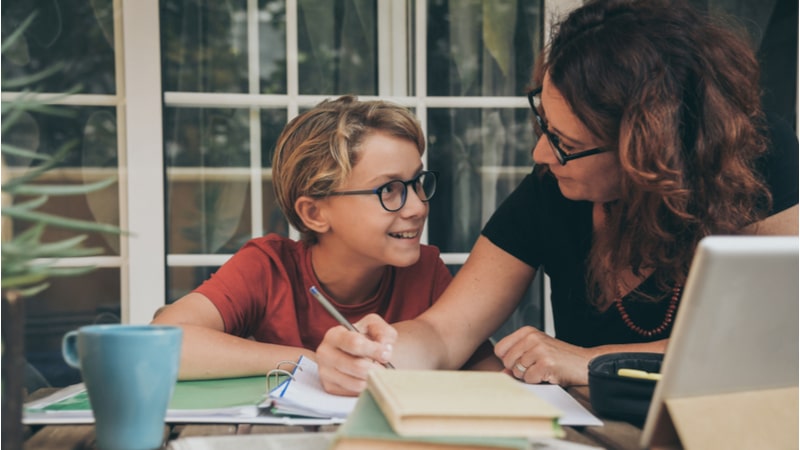
Schools across the country are shuttering their doors amid the COVID-19 coronavirus crisis. While some have tentative plans to reopen later this spring, others – like all schools in the Commonwealth of Virginia – have closed for the remainder for the school year.
School districts are ramping up their distance and e-learning capabilities, but many parents find themselves having to play teacher while balancing their own work responsibilities. Luckily, there has been an outpouring of free educational resources parents can use to keep children engaged, learning, and out of their hair.
Virtual Classrooms
The nonprofit Khan Academy is offering up free classes, covering nearly every subject for students ages 2-18. They’ve also created daily schedules parents can use to keep their students on track, and make sure quarantine doesn’t just turn into a months long spring break. They’ve created a guide for parents, teachers, and students about how to best use their resources during school closures.
Science Lab at Home
Mystery Science, an elementary science ciriculum developer, is offering its most popular science lessons for free. There are full and mini lessons available online for students kindergarten through fifth grade. Including a topical lesson on how hand sanitizer kills germs and a lesson on why woodpeckers peck wood.
Classes Sent to Your Inbox
TedTalks, through TedEd, has developed a daily newsletter that promises to “share high-quality, interactive, video-based lessons on a daily basis, for free.” The newsletter covers students from kindergarten through college and includes nearly every subject matter imaginable.
Blast off to Learning
The Kennedy Space Center, which has closed its visitor center, is turning to Facebook to entertain and education budding space fans. NASA experts are offering live presentations Mondays, Wednesdays, and Fridays on Facebook Live at 9:30 a.m. ET for younger children, and 1 p.m. for young adults. Since launching on March 18, presentations have covered how astronauts live and work in space, the history of different missions, and a reading of Dr. Suess’ There’s no Place Like Space.
Take it Day-by-Day
Scholastic is making it easy for parents by offering day-by-day projects for students kindergarten through grade 9. The lessons are a blend of videos, stories, and prompts for drawing and writing activities. Lessons will teach students why zebras have stripes, as well as “shocking facts about George Washington.”
Master a new Language
Study after study has shown that the earlier you start learning a foreign language, the easier it is to master. So whether your student is looking to pick up a completely new language or looking to continue on with one they were already learning in school, DuoLingo has free lessons for more than 30 languages.
Learning to Draw Online
For students missing art class, they can learn to draw from famous children’s illustrators. Mo Willems, the award-winning children’s author and illustrator, has partnered with the Kennedy Center to offer drawing lessons every weekday at 1 p.m. ET. Jarret Krosoczka, author of the Lunch Lady graphic novel series, is posting daily drawing lessons at 2 p.m. ET on YouTube.
Current Events With a Side of Homework
In a move to keep his niece and nephew learning while their Seattle school is closed, National Public Radio journalist Ari Shapiro is offering weekly classes on current events. “I have no experience teaching 5th graders! I do have some experience with current events,” Shapiro explains on YouTube. Assignment videos will post on Monday and Shapiro will discuss the assignment on Thursday – giving students plenty of time to do their homework.
Need a hug From Elmo?
Quarantining, not being able to see friends and family, and missing school can be scary for little learners, so Elmo is available for virtual hugs. Sesame Street is also offering up resources for parents, including how to discuss COVID-19 with preschoolers, creating routines during “the new normal,” and “making time for play and joy.”
Crash Course of Learning
For the highschoolers in your life, the Crash Course offers a wide array of educational videos on YouTube. The videos cover Astronomy, U.S. History, Anatomy & Physiology, and more. It promises that with “various witty hosts,” your student “won’t even notice [they’re] getting smarter.”
